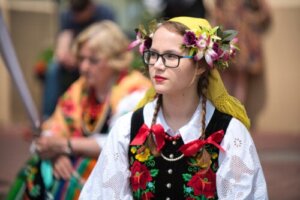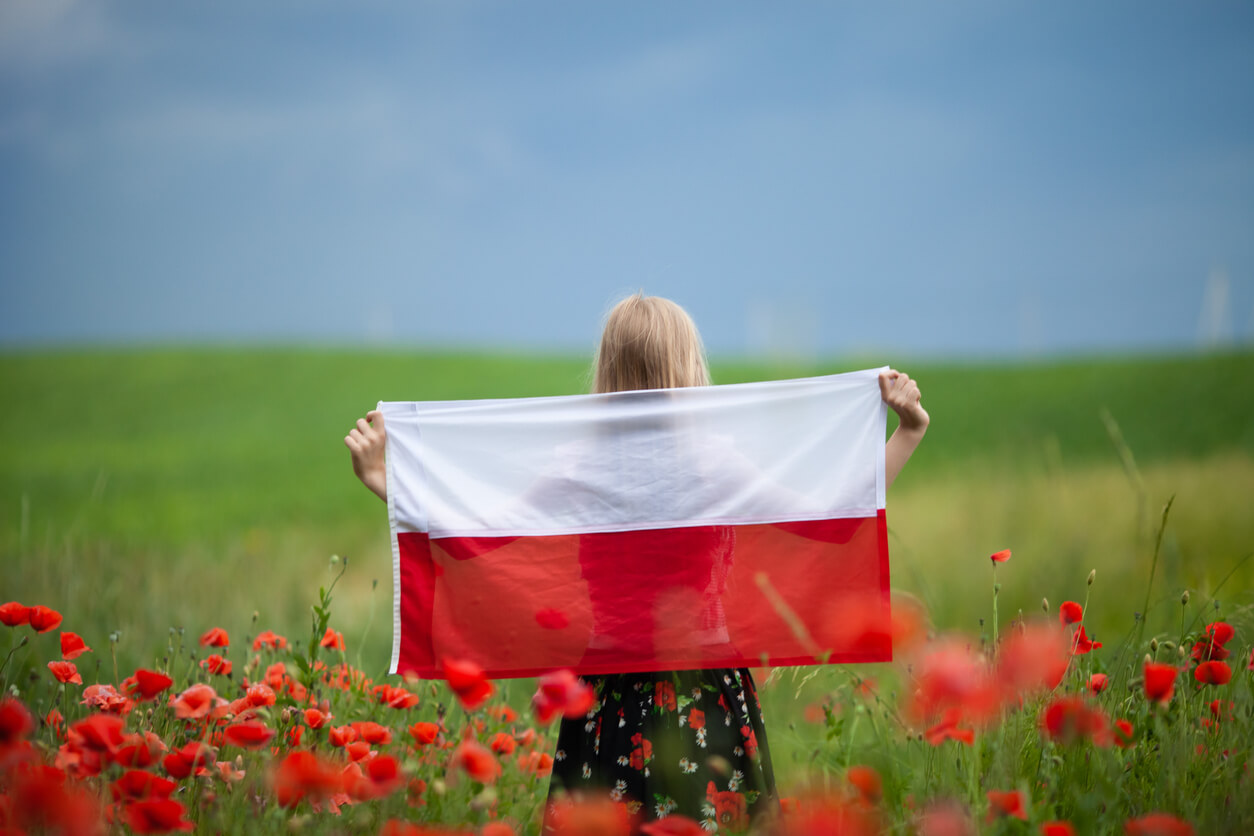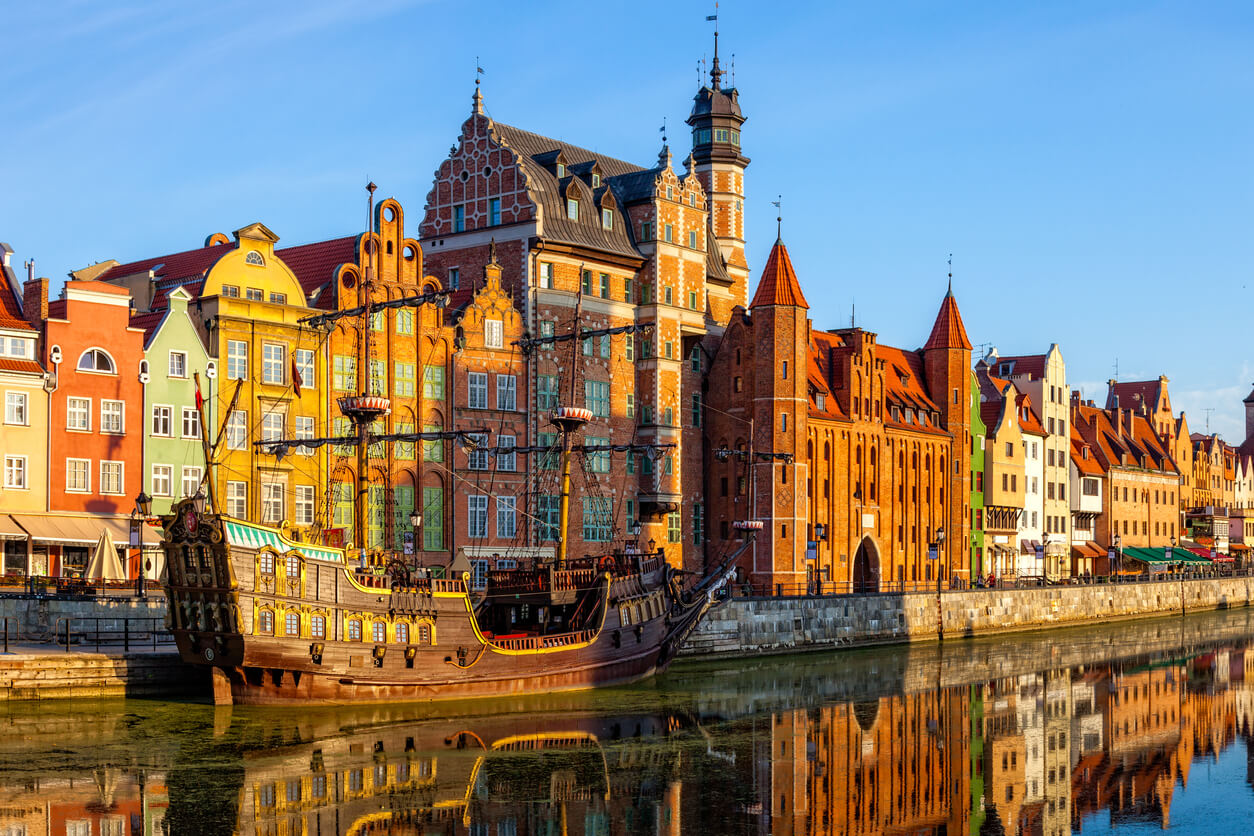119 Names of Polish Names for Girls


Reviewed and approved by the pediatrician Marcela Alejandra Caffulli
Polish names for girls will surprise you with the faith they reflect. In addition, the customs and mythologies of these people also influence the desire of parents when deciding the big questions of life. For example, what name to give to their future baby.
So, if you haven’t yet opted for one, perhaps fortune is on your side today and you’ll find just the right name for the future queen of the house.
Discover these Polish names for girls
Poland has been a Catholic country for many centuries, so many of its names are influenced by Hebrew, Latin, and Aramaic.
At the same time, as a study carried out by the Complutense University of Madrid shows, there’s evidence to support that the beliefs and celebrations of the Slavs related to the cycle of Pentecost are relevant to the study of their mythology and religiosity, to such an extent that the encouragement of spring fertility and the cult of the dead have been well documented since the Middle Ages.
These three thematic pillars are the basis for the different options we’ll suggest below. Do you want to see if any of them touches your heart? Take note!

Polish names for girls: From A to L
- Aldona: as S. C. Rowell explains, this was the name of a 14th-century Polish queen. In fact, Aldona was remembered for her piety and devotion to music. So much so, that wherever she went, she had musicians at court with her.
- Alenka: a name that expressly alludes to the “sacred.”
- Aleska: for one who is a “defender of humanity.”
- Alka: diminutive of Alicia, meaning “intelligent.”
- Ela: Polish diminutive of the name Elizabeth. It comes from Elisa, for one who carries with her “divine providence.”
- Ewa: the Polish form of Eva, for “she who gives life.”
- Fela: meaning “fortunate”, what all parents want their daughter to be in life.
- Irenka: the Polish form of Irena, from the Greek eirene (“peace”).
- Jasia: diminutive of Janina, meaning “God is great.”
- Katarzyna: variant of Katherine for a girl who is “pure.”
- Kassia: in line with the previous one, it also carries the meaning of “pure.”
- Krysta: means “Christian.”
- Laska: for one who carries “grace” with her.
- Lechsinska: a name with a most mythological and natural meaning. In this regard, it alludes to the “nymph of the woods.”
- Lila: for one who comes “from the people.”
- Ludka: means “famous fighting maiden.”
Discover more options: 30 Serbian Names for Girls
Polish names for girls: From M to Z
- Mela: this short name is precious and takes you into the beauty of “darkness.”
- Morelia: alludes to the fruit of the “apricot.”
- Natia: means “hope.'”
- Nelka: alludes to “stone.”
- Olesia: the Polish form of Alejandra, meaning “defender of humanity.”
- Otylia: the Polish variant for “lucky heroine”.
- Rahel: comes from Rachel, meaning “lamb of God.”
- Sylwia: the Polish form for Sylvia, meaning “she who comes from the woods.”
- Tesia: meaning “farmer.”
- Vanda: Polish form of Wanda. In this regard, it refers to “she who wanders”.
- Wira: alludes to the color “white.”
- Yadwiga: the Polish form of Hedwig, a Germanic name meaning “fight.” In addition, according to an article published in the Journal of International History, it can also be found as Jadwiga. This is the name of a 14th-century Polish sovereign, recently canonized as a saint.
- Zali: the Polish variant of Sara, meaning “princess.” That is, what all parents think of their little girl at birth.
- Zuzka: expressly alludes to the flower of the ‘lily or lotus’.

Polish names for girls are perfect options for parents of faith
Choosing the name of the future queen of the house can become a complicated task. However, perhaps some of these options have caused your heart to start beating faster than usual. If so, congratulations! Tell us about your favorite one!
Polish names for girls will surprise you with the faith they reflect. In addition, the customs and mythologies of these people also influence the desire of parents when deciding the big questions of life. For example, what name to give to their future baby.
So, if you haven’t yet opted for one, perhaps fortune is on your side today and you’ll find just the right name for the future queen of the house.
Discover these Polish names for girls
Poland has been a Catholic country for many centuries, so many of its names are influenced by Hebrew, Latin, and Aramaic.
At the same time, as a study carried out by the Complutense University of Madrid shows, there’s evidence to support that the beliefs and celebrations of the Slavs related to the cycle of Pentecost are relevant to the study of their mythology and religiosity, to such an extent that the encouragement of spring fertility and the cult of the dead have been well documented since the Middle Ages.
These three thematic pillars are the basis for the different options we’ll suggest below. Do you want to see if any of them touches your heart? Take note!

Polish names for girls: From A to L
- Aldona: as S. C. Rowell explains, this was the name of a 14th-century Polish queen. In fact, Aldona was remembered for her piety and devotion to music. So much so, that wherever she went, she had musicians at court with her.
- Alenka: a name that expressly alludes to the “sacred.”
- Aleska: for one who is a “defender of humanity.”
- Alka: diminutive of Alicia, meaning “intelligent.”
- Ela: Polish diminutive of the name Elizabeth. It comes from Elisa, for one who carries with her “divine providence.”
- Ewa: the Polish form of Eva, for “she who gives life.”
- Fela: meaning “fortunate”, what all parents want their daughter to be in life.
- Irenka: the Polish form of Irena, from the Greek eirene (“peace”).
- Jasia: diminutive of Janina, meaning “God is great.”
- Katarzyna: variant of Katherine for a girl who is “pure.”
- Kassia: in line with the previous one, it also carries the meaning of “pure.”
- Krysta: means “Christian.”
- Laska: for one who carries “grace” with her.
- Lechsinska: a name with a most mythological and natural meaning. In this regard, it alludes to the “nymph of the woods.”
- Lila: for one who comes “from the people.”
- Ludka: means “famous fighting maiden.”
Discover more options: 30 Serbian Names for Girls
Polish names for girls: From M to Z
- Mela: this short name is precious and takes you into the beauty of “darkness.”
- Morelia: alludes to the fruit of the “apricot.”
- Natia: means “hope.'”
- Nelka: alludes to “stone.”
- Olesia: the Polish form of Alejandra, meaning “defender of humanity.”
- Otylia: the Polish variant for “lucky heroine”.
- Rahel: comes from Rachel, meaning “lamb of God.”
- Sylwia: the Polish form for Sylvia, meaning “she who comes from the woods.”
- Tesia: meaning “farmer.”
- Vanda: Polish form of Wanda. In this regard, it refers to “she who wanders”.
- Wira: alludes to the color “white.”
- Yadwiga: the Polish form of Hedwig, a Germanic name meaning “fight.” In addition, according to an article published in the Journal of International History, it can also be found as Jadwiga. This is the name of a 14th-century Polish sovereign, recently canonized as a saint.
- Zali: the Polish variant of Sara, meaning “princess.” That is, what all parents think of their little girl at birth.
- Zuzka: expressly alludes to the flower of the ‘lily or lotus’.

Polish names for girls are perfect options for parents of faith
Choosing the name of the future queen of the house can become a complicated task. However, perhaps some of these options have caused your heart to start beating faster than usual. If so, congratulations! Tell us about your favorite one!
All cited sources were thoroughly reviewed by our team to ensure their quality, reliability, currency, and validity. The bibliography of this article was considered reliable and of academic or scientific accuracy.
- Barker, John W. (1993). The International History Review, vol. 15, no. 1, Taylor & Francis, Ltd., pp. 145–48, https://www.jstor.org/stable/i40003625
- López Fernández JI. (2006). Tradiciones eslavas precristianas en torno al ciclo de Pentecostés/Some Heathen Slavic Traditions Connected with Whitsun Cycle [Internet]. Vol. 6, Madrid. p. 217-27. Disponible en: https://www.proquest.com/openview/0fc02129fa7d4e5f2c2b00433fc052c1/1/advanced
- Rowell, C. S. (1994). Lithuania Ascending: A Pagan Empire Within East-Central Europe, 1295-1345. Cambridge Studies in Medieval Life and Thought: Fourth Series. Cambridge University Press. p. 87. ISBN 978-0-521-45011-9.
This text is provided for informational purposes only and does not replace consultation with a professional. If in doubt, consult your specialist.








